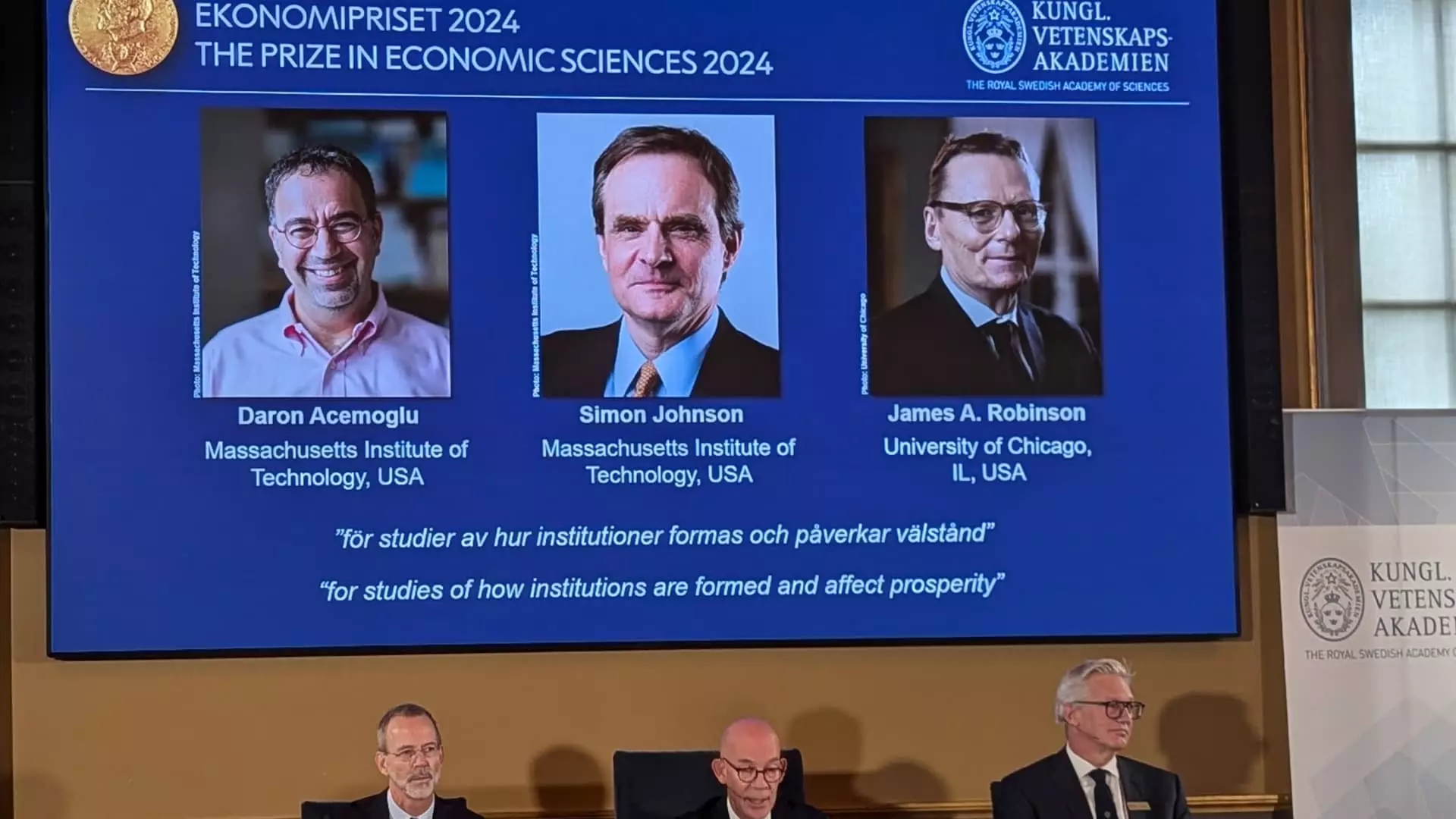In a significant recognition of their contributions to the field of economics, Daron Acemoglu, Simon Johnson, and James Robinson were awarded the Nobel Prize in Economic Sciences. Their groundbreaking research focuses on the critical role that institutions play in determining the economic fortunes of nations. This accolade not only honors their individual accomplishments but shines a light on the vital conversations surrounding wealth disparity across the globe.
The gap between the wealthiest and the poorest nations remains a pressing challenge in global economics. According to recent statements from the Nobel committee, the richest 20% of countries now boast wealth that is approximately thirty times greater than that of the poorest 20%. This staggering statistic raises urgent questions about why some countries flourish while others languish in poverty. Through their research, Acemoglu, Johnson, and Robinson elucidate the complexities of these disparities shaped by historical contexts and institutional frameworks.
Acemoglu, Johnson, and Robinson argue that the wealth generated by nations is strongly tied to the quality of their institutions—specifically, the systems of governance that dictate how power and resources are distributed. Their findings suggest that societies characterized by a lack of robust legal frameworks and accountable institutions are unlikely to experience sustainable economic growth. Such institutions often exploit the population rather than serving it, leading to stagnation and chronic underdevelopment.
The authors notably connect these themes to the legacy of colonialism, positing that the economic structures imposed by colonizers centuries ago continue to influence developmental trajectories in present-day nations. Countries that were resource-rich at the time of colonization often struggled post-colonization due to the extractive institutions left behind, which hindered their capacity to establish equitable systems that stimulate growth.
A key component of the laureates’ work is their ability to bridge theoretical research with empirical evidence. They have pioneered methodologies that significantly enhance the understanding of wealth inequality. For instance, their seminal work, “Why Nations Fail,” delves into the interplay between political and economic determinants, providing a framework for analyzing why certain nations thrive while others falter.
Jakob Svensson, a director at Stockholm University, emphasized the novelty of their approaches during a recent press conference, noting that their theories provide a refreshing lens through which to view economic disparities. Their research has not only been instrumental in advancing academic discourse but has also provided policymakers with insights necessary for implementing effective strategies to combat poverty and promote equitable growth.
The recognition of Acemoglu, Johnson, and Robinson underscores the relevance of their work in ongoing discussions about inequality. As the world grapples with persistent economic disparities, their findings serve as a critical reminder that solutions must consider historical injustices and institutional reforms.
Policy recommendations drawn from their research emphasize the importance of fostering inclusive institutions that promote participation, accountability, and the rule of law. These reforms are essential for breaking the cycle of poverty and enabling sustainable economic development.
The Nobel Prize, presented annually, seeks to honor exceptional contributions in various fields, including chemistry, literature, and peace. This year’s award for economic sciences serves as a reminder of the interconnectedness of societal advancement and economic development. As society continuously evolves, understanding these dynamics is essential for addressing contemporary challenges.
The laureates will share a monetary reward of 11 million Swedish kronor (approximately $1.058 million), following in the footsteps of previous winners who have also explored the complexities of economics in ways that resonate globally. Their achievements illustrate that meaningful research can pave the way for a more equitable future.
The Nobel recognition awarded to Acemoglu, Johnson, and Robinson highlights the essential role of institutions in economic prosperity and challenges prevailing narratives around wealth inequality. As countries navigate the complexities of globalization, their research offers valuable insights into crafting policies that promote equity, accountability, and long-term growth. In a world where wealth disparities are increasingly scrutinized, understanding the roots of these disparities is imperative for steering societies toward a more inclusive future.


Leave a Reply